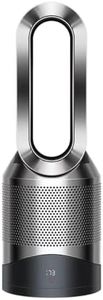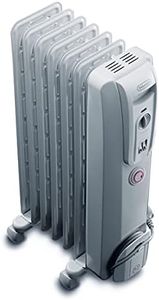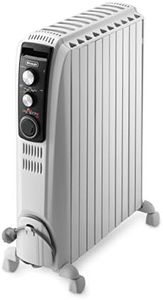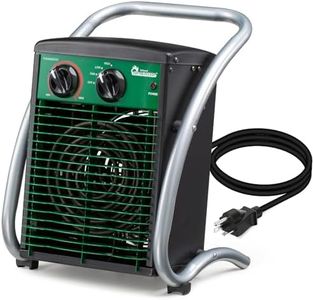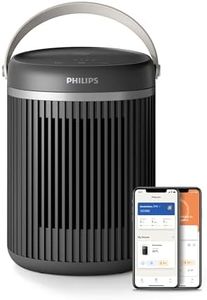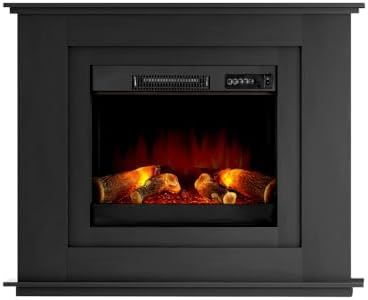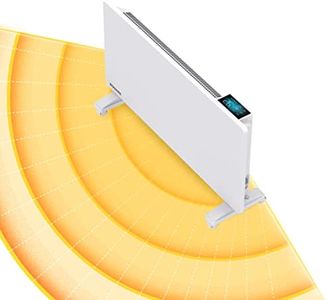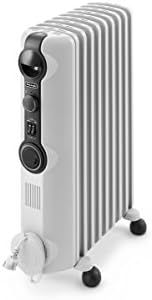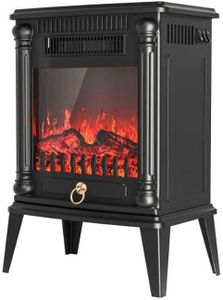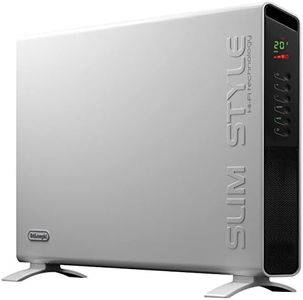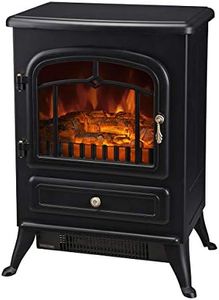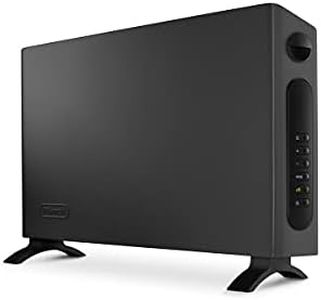We Use CookiesWe use cookies to enhance the security, performance,
functionality and for analytical and promotional activities. By continuing to browse this site you
are agreeing to our privacy policy
10 Best Room Heaters
From leading brands and best sellers available on the web.By clicking on a link to a third party's website, log data is shared with that third party.
Buying Guide for the Best Room Heaters
Choosing a room heater can make your indoor environment much more comfortable during colder months. However, picking the right one depends on your room size, how quickly you want the room to heat up, your safety requirements, and any comfort features you might want. Understanding the key specifications will help you narrow down your options, making sure the heater suits your unique needs and living space.Wattage (Power Consumption)Wattage tells you how much power a heater uses and how much heat it can provide. Higher wattage heaters (like those above 2000 Watts) are suitable for larger spaces or quick heating needs, while lower wattage (such as 500-1000 Watts) is ideal for smaller rooms or occasional use. Choosing the right wattage depends on your room size and how quickly you want it warm. For small rooms, a lower wattage is often sufficient, but for larger bedrooms or living rooms, look for a higher wattage for effective heating.
Heater Type (Convection, Radiant, Oil-filled etc.)Different heater types work in different ways. Convection heaters warm the air and are good for overall, even heating – perfect if you want the whole room warm over time. Radiant heaters directly warm people and objects in front of them, which is faster if you need spot heating or quick warmth. Oil-filled heaters provide steady, silent, long-lasting heat and retain some heat even after being switched off, making them ideal for overnight use in bedrooms. Your choice depends on whether you want quick, focused warmth or slow, steady heating for the whole room.
Room Size CompatibilityManufacturers usually indicate the suitable room size for each heater, often in square feet or meters. Smaller heaters are designed for compact bedrooms or study rooms, while larger heaters will specify suitability for open spaces or big living rooms. Pick a heater that matches or slightly exceeds your room size to ensure efficient performance and avoid overworking the device.
Safety FeaturesSafety features help prevent accidents or fire risks. The most common are tip-over protection (shuts the heater off if it falls), overheat protection (turns it off if it gets too hot), and cool-to-touch exteriors (reduces the risk of burns). These are especially important if you have children, pets, or plan to leave the heater running unsupervised. Always prioritize safety features if your living situation involves risks.
Thermostat and Temperature ControlThermostats help maintain a steady, comfortable temperature and can save energy because the heater turns off when the room reaches the desired warmth. Basic models have limited settings (like high/low), while more advanced ones offer precise temperature control. If you want to set and forget your heater, or if you want to maintain a specific comfort level, look for a model with adjustable thermostat controls.
Noise LevelSome heaters can be quite noisy, especially fan-based models, while others like oil-filled heaters are almost silent. Consider how important quiet is for your environment. For bedrooms or study areas, a low-noise heater provides comfort without disturbing sleep or concentration. In living rooms, noise may not matter as much if there’s background sound anyway.
Portability and SizeHeaters come in various sizes – some are compact and lightweight with handles or wheels for easy movement, while others are heavier and best kept in one place. If you need to use the heater in different rooms or store it away after winter, portability is important. For permanent placement, size and portability may not be as relevant.
Energy EfficiencyAn energy-efficient heater can help you save on electricity bills in the long run. Features like energy-saving modes, programmable timers, and thermostats all contribute to efficiency. If running costs are a concern or you plan to use the heater frequently, look for energy efficiency ratings or features that help minimize electricity use.
